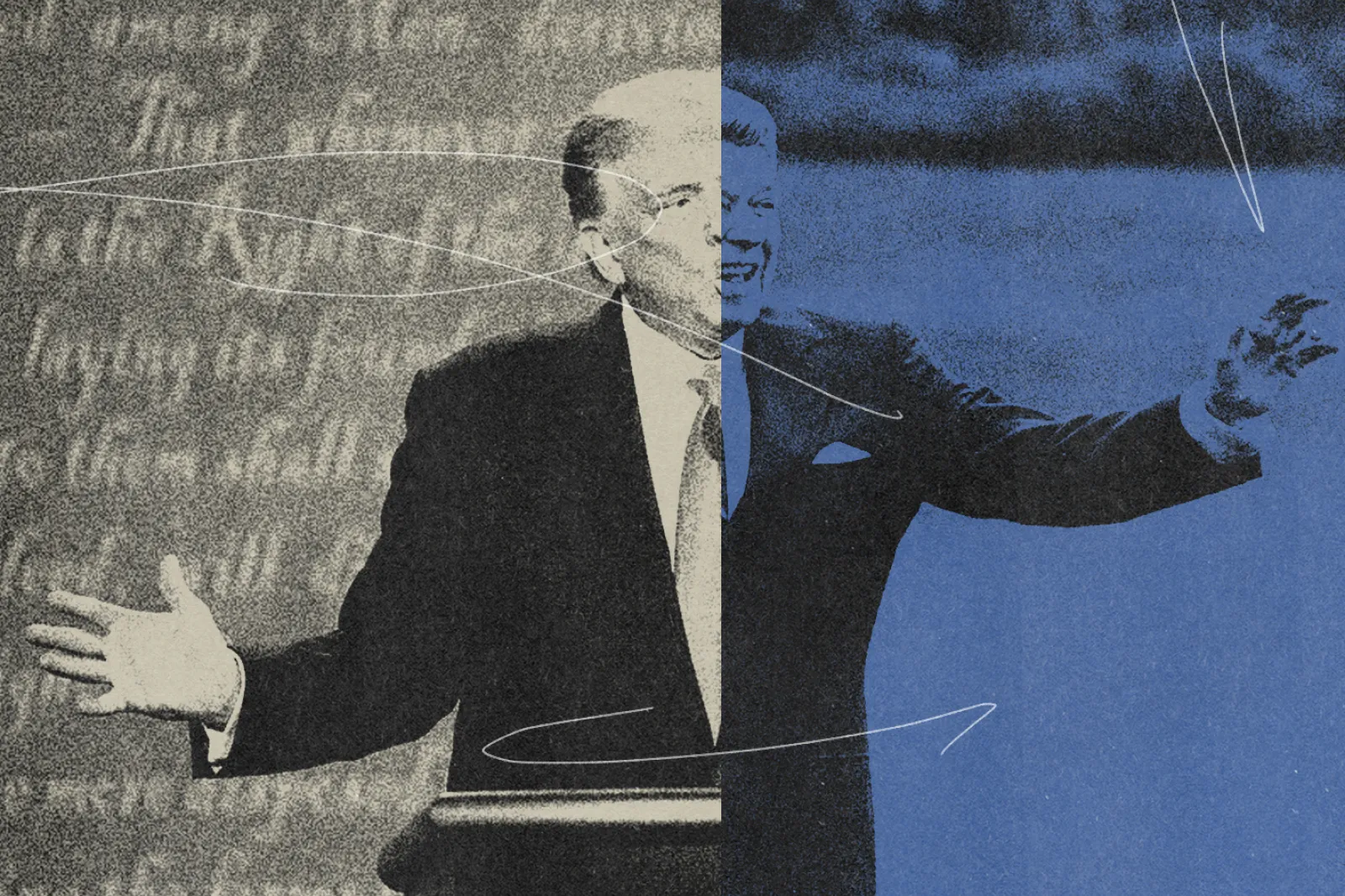
Trump more hostile to Canada than any other president: Frum
David Frum, staff writer at The Atlantic magazine, talks with Financial Post’s Larysa Harapyn about how to filter the fact from the fiction with Trump’s…
Thought Leader: David Frum

Donald Trump’s 2024 presidential campaign very deliberately echoed the one that Ronald Reagan ran in 1980. “Peace through strength” and “Are you better off today than you were four years ago?” are the two Reagan slogans that are best remembered today. Less well known is that in 1980, Reagan used the slogan “Make America great again,” including in his convention acceptance speech.
Few commentators have paid much attention to these parallels, partly because the two presidents’ personalities are so different, partly because paying tribute to Reagan has long been a vacuous ritual for Republican candidates. But the analogy is instructive—and Trump should use it to his political and strategic advantage, remembering (as others have forgotten) what exactly “peace through strength” turned out to mean in the 1980s. Although it has become fashionable to credit the Soviet leader Mikhail Gorbachev with ending the Cold War, in truth it was the Reagan administration that forced Moscow down a path of reform that ultimately led to drastic disarmament and the end of the Soviet empire in eastern Europe.
Reagan opened with strength. He boldly reasserted the American rejection of communism as an ideology and Soviet expansionism as a strategy. At the same time, he initiated a major increase in defense spending that sought to exploit U.S. technological superiority. When the right time came, however, he pivoted to a series of summit meetings with Gorbachev that ultimately produced stunning breakthroughs in both disarmament and European security.
As he makes clear in his book The Art of the Deal, Trump lives to bargain. “There are times when you have to be aggressive,” he writes of one real estate coup, “but there are also times when your best strategy is to lie back.” Trump firmly believes that, in a negotiation with a strong adversary, one must open aggressively—but then seek the crucial moment to settle. Today, the United States finds itself in at least the sixth year of a second cold war, this time with China, a confrontation that has become even more dangerous under the Biden administration. In his first term, Trump recognized the American need to contain China’s rise and convinced Washington policy elites, despite their initial skepticism, that this required both a trade war and a tech war. In his second term, he should once again begin by piling on the pressure with a fresh show of American strength. But this should not be an end in itself. His ultimate goal ought to be like Reagan’s: to get to a deal with Washington’s principal adversary that reduces the nightmarish risk of World War III—a risk inherent in a cold war between two nuclear-armed superpowers.
Trump more hostile to Canada than any other president: Frum
David Frum, staff writer at The Atlantic magazine, talks with Financial Post’s Larysa Harapyn about how to filter the fact from the fiction with Trump’s…
Thought Leader: David Frum
Joseph Grogan: Medicare should cover Wegovy — but not negotiate its price
Price controls are a surefire way to crush innovation. President Biden took a groundbreaking step in proposing to cover GLP-1 obesity medications under Medicare and Medicaid in…
Thought Leader: Joseph Grogan
Anders Fogh Rasmussen: An alliance of democracies with India at its core
Europe and India need a more practical relationship; together, Europe, India and the United States can be unstoppable. By: Anders Fogh Rasmussen In the minutes…
Thought Leader: Anders Fogh Rasmussen

